Medical Research Posts on Crowch
October is a month painted in pink. It reminds us of the importance of taking care of our health, of the strength of support, and of the power of hope to change lives.
Breast cancer remains one of the most common cancers among women worldwide. Yet it is also a disease that can and must be fought. Modern methods of diagnosis and treatment give thousands of people a chance, and early detection often becomes the key to survival.

But Breast Cancer Awareness Month is not only about medical facts. It is, above all, about people. About women who find the strength to keep fighting every single day. About families who stand as a solid pillar of support. About doctors who put their hearts and knowledge into giving patients a future.
What does this month stand for?
- Reminder. Check your health. Don’t postpone doctor visits. Self-exams and regular screenings can save lives.
- Support. No one facing the disease should feel alone. Every smile, every kind word of encouragement matters.
- Hope. Stories of recovery inspire us and show that victory is possible.
- Unity. Millions of people around the world wear the pink ribbon to say: “We are together.”

Breast Cancer Awareness Month is a time to act. To take a step for yourself and for others. To share information, support a charity, remind loved ones about prevention. Even the smallest gesture can make a huge difference.
🌸 October in pink is a symbol of life, strength, and the future. A future where knowledge and solidarity are stronger than fear.
October unites millions of people across the world. When we see the pink ribbon, we know it is not just a symbol — it is a story of struggle, hope, and faith.
Breast cancer is a diagnosis that may sound frightening and unexpected. But behind every diagnosis stands a person who continues to live, to dream, and to fight. Many women go through incredibly difficult challenges while holding on to their remarkable inner strength. Their stories inspire others — proving that even in the darkest times, there is always light to be found.
Why does this month matter so much?
- It reminds us that early detection saves lives. Simple self-exams and regular doctor visits can be life-changing.
- It highlights the need for support. Care from friends, family, and communities helps ensure that no one faces the journey alone.
- It represents solidarity. Wearing the pink ribbon may seem like a small act, but it carries powerful meaning.

Breast Cancer Awareness Month is not only about illness — it is about strength. The strength of those who are fighting. The dedication of doctors and nurses who work tirelessly for their patients. The love and resilience of families and friends who stand as a pillar of hope.
Each of us can take a step forward: reminding loved ones about prevention, sharing helpful information, supporting a charity, or simply offering words of encouragement. Even the smallest act can save a life.

October in pink is a symbol of a future where knowledge, care, and unity are stronger than fear. It is a time to speak loudly, to inspire one another, and to remember: together, we can do more.
Every October 10th, people in over 150 countries unite to observe World Mental Health Day, a moment to acknowledge the importance of psychological well-being and to take collective action against the stigma that surrounds it. This day, initiated in 1992 by the World Federation for Mental Health, is not just a date on the calendar — it’s a reminder that mental health is the foundation for a fulfilling life.
More Than the Absence of Illness
Mental health is not only about the absence of disorders like depression or anxiety; it’s also about having the emotional resilience to cope with stress, the ability to build strong relationships, and the capacity to contribute to one’s community. Just as we take care of our bodies, we must also prioritize our minds.
The Growing Global Concern
According to the World Health Organization, one in eight people worldwide lives with a mental health condition. The COVID-19 pandemic, economic instability, and social isolation have intensified this crisis, making it even more urgent to invest in mental health care and prevention strategies.

The Power of Awareness and Conversation
One of the greatest barriers to mental health support is silence. Stigma discourages people from seeking help, fearing judgment or misunderstanding. World Mental Health Day opens the door to conversations — in schools, workplaces, and homes — where people can share experiences and encourage one another.
Practical Steps for Everyone

- Check In with Yourself: Practice mindfulness, keep a journal, or take short breaks to recharge during the day.
- Reach Out to Others: A small gesture of kindness or a listening ear can make a difference.
- Seek Help Early: Whether through counseling, therapy, or support groups, early intervention can prevent more serious challenges.
- Educate Yourself: Learn about mental health to better understand and support those around you.
A Shared Responsibility
Governments, organizations, and communities all have a role to play — from creating accessible mental health services to fostering inclusive environments where everyone feels safe to speak openly. Investing in mental health is not just a humanitarian priority; it’s an economic one, as healthier individuals contribute more positively to society.
The Message of October 10th
World Mental Health Day is an invitation to reflect, connect, and take action. By showing compassion to ourselves and to others, we can help build a world where mental well-being is a shared value, not an afterthought.
October 10th marks World Mental Health Day, a global event dedicated to raising awareness about the importance of emotional well-being, prevention, and support for those facing psychological challenges. Established by the World Federation for Mental Health in 1992, this day has since been a platform to address key issues affecting mental health worldwide.
Why It Matters
Mental health shapes how we think, feel, interact, and cope with life’s challenges. It impacts our quality of life, productivity, and our ability to maintain healthy relationships. Stress, anxiety, depression, and burnout are not just passing phases — they are real concerns that require understanding and proper care.
Theme of 2025
Each year, World Mental Health Day focuses on a specific theme, from increasing access to mental health care to combating stigma. The core message remains the same: mental health is just as important as physical health, and support should be available to everyone.
Breaking Stigma
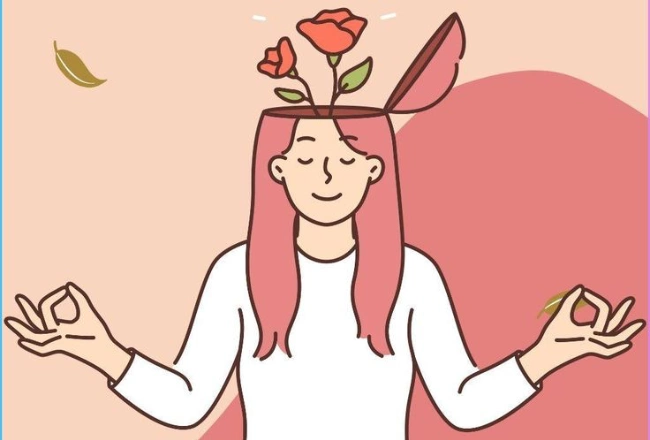
In many cultures, mental health issues remain a taboo topic. This leads to fear, shame, and hesitation to seek help. Public awareness campaigns, education, and sharing personal stories are essential to breaking down prejudice and building acceptance.
Ways to Get Involved
- Start Conversations with friends and family about self-care and emotional well-being.
- Offer Support to someone going through a difficult time.
- Learn relaxation techniques, meditation, or breathing exercises.
- Participate in charity events, talks, or workshops on mental health.

The Key Message
World Mental Health Day is a reminder that caring for your inner world is not a luxury, but a necessity. Every one of us can make a difference — by listening, offering kindness, and creating safe spaces. A healthier society begins with the mental well-being of each individual.
October is a special month for millions of people across the globe. The pink ribbon has become a universal emblem of unity — bringing together those who are currently fighting breast cancer, those who have survived it, and those who offer their unwavering support. Breast Cancer Awareness Month is not just a symbolic event on the calendar. It is a movement, a reminder, and a call to action: our health is in our own hands.
The Reality and the Hope
Breast cancer does not discriminate. It can affect women and men, young and old, regardless of profession, background, or lifestyle. But there is hope — when detected early, breast cancer is one of the most treatable forms of cancer. Survival rates increase dramatically when the disease is found at an early stage, before it spreads. This makes awareness and regular screening not just important, but life-saving.
Too often, people delay checkups because they feel healthy, are too busy, or fear the results. But early detection offers options, treatment plans, and a much higher chance of recovery. It turns fear into action and uncertainty into hope.
Taking Care of Yourself

Caring for your breast health starts with simple steps:
- Self-examination: Once a month, take a few minutes to check for any unusual lumps, changes in skin texture, or other irregularities.
- Regular medical checkups: Schedule a clinical breast exam with your healthcare provider.
- Mammograms: For women over 40, annual or biennial screenings are generally recommended. If you have a family history or other risk factors, speak to your doctor about starting earlier.
These actions are small in effort but monumental in impact.
Supporting the Cause

Pink October is not only about personal health — it’s about collective action. Across the world, communities organize charity runs, awareness events, fundraising galas, and educational workshops. Landmarks light up in pink to keep the conversation alive. Social media becomes a platform for survivor stories, expert advice, and calls to participate.
You don’t need to be a doctor or a researcher to contribute. Sharing accurate information, encouraging loved ones to get screened, or donating to organizations that support patients and fund research are all powerful ways to make a difference. Sometimes, a simple conversation can prompt someone to take the first step toward early detection.
A Call to Action
This October, let the pink ribbon be more than a symbol — let it be your personal reminder to act. If you have been postponing your checkup, schedule it now. If you know someone at risk, reach out to them. If you have a platform, use it to spread awareness.
Breast cancer is a challenge, but it is one we can face with knowledge, solidarity, and determination. Together, we can save lives, offer hope, and work toward a future where fewer people have to endure this disease.
Today is the best day to take a step toward better health — for yourself and for those you love.
October is globally recognized as Breast Cancer Awareness Month — a dedicated time to raise awareness about one of the most common and life-impacting cancers affecting women worldwide. While the pink ribbon has become a universal symbol of hope and solidarity, this month is about much more than wearing pink. It is about sharing knowledge, supporting research, encouraging early detection, and standing together in the fight against breast cancer.
Why It Matters
Breast cancer affects millions each year, but when detected early, the survival rates are significantly higher. The disease often develops quietly, without clear symptoms in its initial stages, making regular screening and self-awareness essential. Modern diagnostic tools — such as mammography, ultrasound, and MRI — along with monthly self-examinations, allow women to detect changes before they become life-threatening.
Certain factors may increase the risk, such as age, family history, genetic mutations (like BRCA1 and BRCA2), hormonal factors, and lifestyle habits. However, breast cancer can also occur in those without any known risk factors, which is why awareness and vigilance are key for everyone.
Global Movement
Throughout October, landmarks, buildings, and even entire city skylines are illuminated in pink as part of the “Pink October” movement. From charity walks and marathons to educational workshops and free medical screenings, communities come together to spread awareness and raise funds for research and patient support.
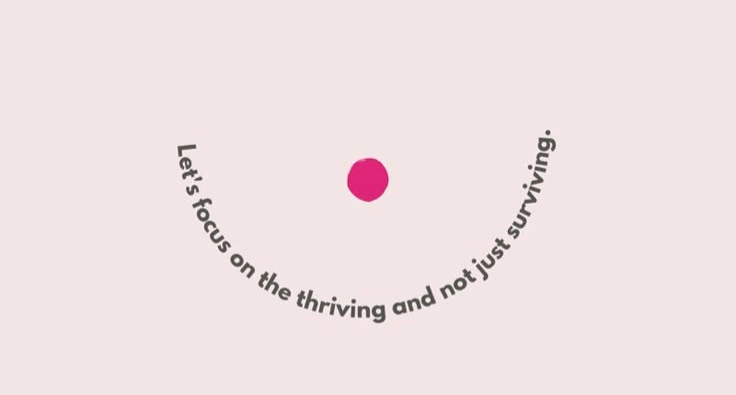
These events are not only about raising money but also about building a sense of community for survivors, patients, and families. Hearing the stories of those who have faced breast cancer — their resilience, struggles, and victories — can inspire others to prioritize their health and never lose hope.
How You Can Take Action
You do not have to be a doctor or a scientist to make a difference. Here are simple but powerful ways to contribute:
- Learn and practice breast self-exams once a month, ideally a few days after your menstrual cycle ends.
- Schedule regular screenings — mammograms are recommended annually or biennially for most women over 40, but your doctor may advise earlier or more frequent testing.
- Share information with friends, family, and colleagues. Awareness spreads through conversations.
- Support charities and organizations dedicated to breast cancer research, patient assistance, and advocacy. Even small donations can help fund critical studies and provide resources for those in need.
- Encourage open dialogue — breaking the stigma around talking about breast health can save lives.
A Message of Hope

Breast Cancer Awareness Month is a reminder that while the fight against cancer is challenging, it is not fought alone. Advances in treatment, increasing awareness, and growing global solidarity are changing the future of this disease. Survivors are living proof that early detection works and that support systems — both medical and emotional — can make all the difference.
This October, wear your pink ribbon proudly, schedule that check-up you have been postponing, and encourage others to do the same. Your awareness, your voice, and your actions could save a life — maybe even your own.
🌿 Saudi Arabia Health Focus: What Is Folate, and Why It Matters
Many residents of Saudi Arabia and the Emirates face common wellness complaints — low energy, mood imbalance, frequent colds — and often overlook one vital nutrient: folic acid, also known as vitamin B9.
Folic acid plays a central role in hundreds of bodily processes — from energy production and red blood cell creation to DNA repair and mood regulation. However, not all forms of this vitamin are created equal. The most bioavailable form for the human body is methylfolate — and it may be the missing key in your wellness strategy.
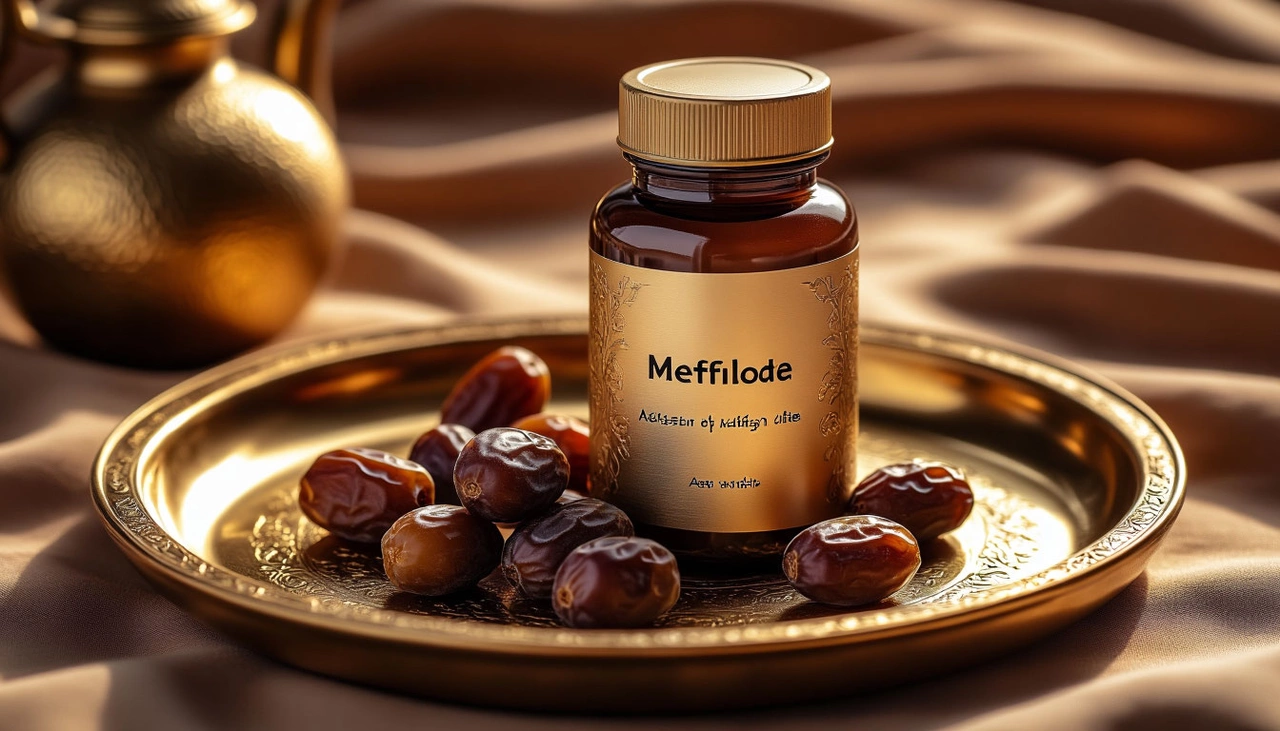
⚡ Emirates Energy Boost: Methylfolate Fuels Your Body’s Vital Systems
Vitamin B9 is essential for converting food into energy. Without enough folate, your cells can't produce ATP — the fuel that powers everything from brain activity to muscle movement.
Methylfolate, unlike synthetic folic acid, bypasses genetic enzyme limitations common in the Middle East population (such as MTHFR gene mutations), making it immediately available for energy metabolism.
If you experience:
- Chronic tiredness 💤
- Morning grogginess
- Weak endurance
…adding methylfolate to your routine may help restore vibrant energy naturally.
🩺 Saudi Arabia Heart Health: Folate Reduces Homocysteine Levels
High levels of homocysteine, an amino acid in the blood, are linked to cardiovascular risk — a growing concern in Gulf countries with modern sedentary lifestyles and fast food habits.
Methylfolate helps the body process and clear excess homocysteine, reducing inflammation and supporting blood vessel health. For those in Jeddah, Riyadh or Abu Dhabi, where diet and heat stress affect heart health, this nutrient is especially valuable.
Combined with magnesium, omega-3, and vitamin B6, methylfolate offers a complete heart-supportive protocol.
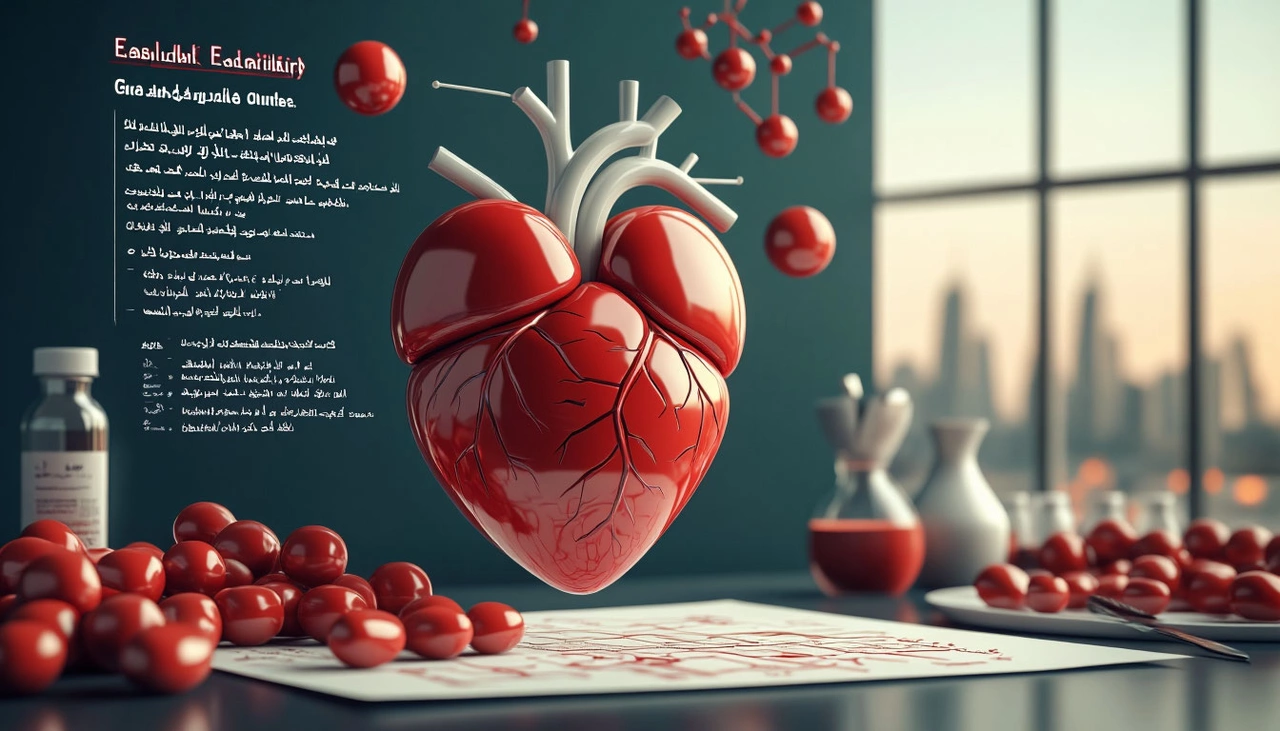
🧠 Emirates Brain & Mood Support: Folate for Cognitive Clarity
Folate plays a vital role in the production of neurotransmitters — the chemicals that regulate mood, focus, and mental resilience.
Low levels of B9 are associated with:
- Anxiety and irritability
- Brain fog
- Depression symptoms
Methylfolate supports the production of serotonin, dopamine, and norepinephrine, all essential for emotional balance and cognitive sharpness. This makes it an important ally for busy professionals and students in the UAE and Saudi Arabia seeking mental clarity and mood stability.
👶 Saudi Arabia & Pregnancy: Folate for Healthy Fetal Development
For women planning pregnancy or currently expecting, methylfolate is a non-negotiable nutrient. It’s critical for neural tube development in the early stages of pregnancy and reduces the risk of birth defects.
Unlike synthetic folic acid, which requires enzymatic conversion, methylfolate ensures immediate absorption and protection — especially for women with MTHFR mutations, which are common in the Middle East.
Doctors across the GCC region now increasingly recommend methylfolate-based prenatal formulas.
✅ Don’t Underestimate This Small-but-Mighty Vitamin
In the vibrant yet demanding lifestyle of Saudi Arabia and the Emirates, staying healthy means thinking deeper than basic nutrition. Folate — especially as methylfolate — is more than just a prenatal vitamin. It's a core pillar of energy, mood, and longevity.
Speak with your healthcare provider about integrating high-quality methylfolate into your daily routine — for a sharper mind, stronger heart, and energized life.
🌟 Beyond Beauty: The Real Power of Vitamin E
When most people hear “vitamin E,” they think of skincare products promising smooth, youthful skin. While it’s true that vitamin E benefits the skin, limiting its reputation to just cosmetic uses misses its critical impact on overall health. Vitamin E, particularly in its form alpha-tocopherol, is a powerful antioxidant. It works by neutralizing free radicals — unstable molecules that damage cells, accelerate aging, and contribute to chronic diseases.

🧠 What Does Vitamin E Actually Do in the Body?
Here are some of the vital functions vitamin E performs beyond supporting skin health:
- 🛡️ Protects cell membranes by preventing oxidative damage
- ❤️ Supports cardiovascular health by protecting blood vessels
- 🧬 Preserves DNA integrity, reducing inflammation and cellular stress
- 🧠 Improves cognitive function and may help delay age-related decline
- 🫀 Maintains healthy cholesterol levels, reducing LDL oxidation
- ⚖️ Regulates hormonal balance, especially in reproductive health
In short, vitamin E acts like a guardian for your cells — defending them from environmental and internal stressors.
🫀 Vitamin E and Heart Health
Oxidative stress is one of the silent culprits behind atherosclerosis (hardening of the arteries), a major risk factor for heart disease. Vitamin E:
- Inhibits the oxidation of LDL (bad cholesterol), a key event in plaque formation
- Enhances circulation and reduces the risk of blood clots
- May help lower inflammatory markers in the bloodstream
Studies show that individuals with higher vitamin E levels often have better cardiovascular resilience, especially under high stress or poor diet conditions.
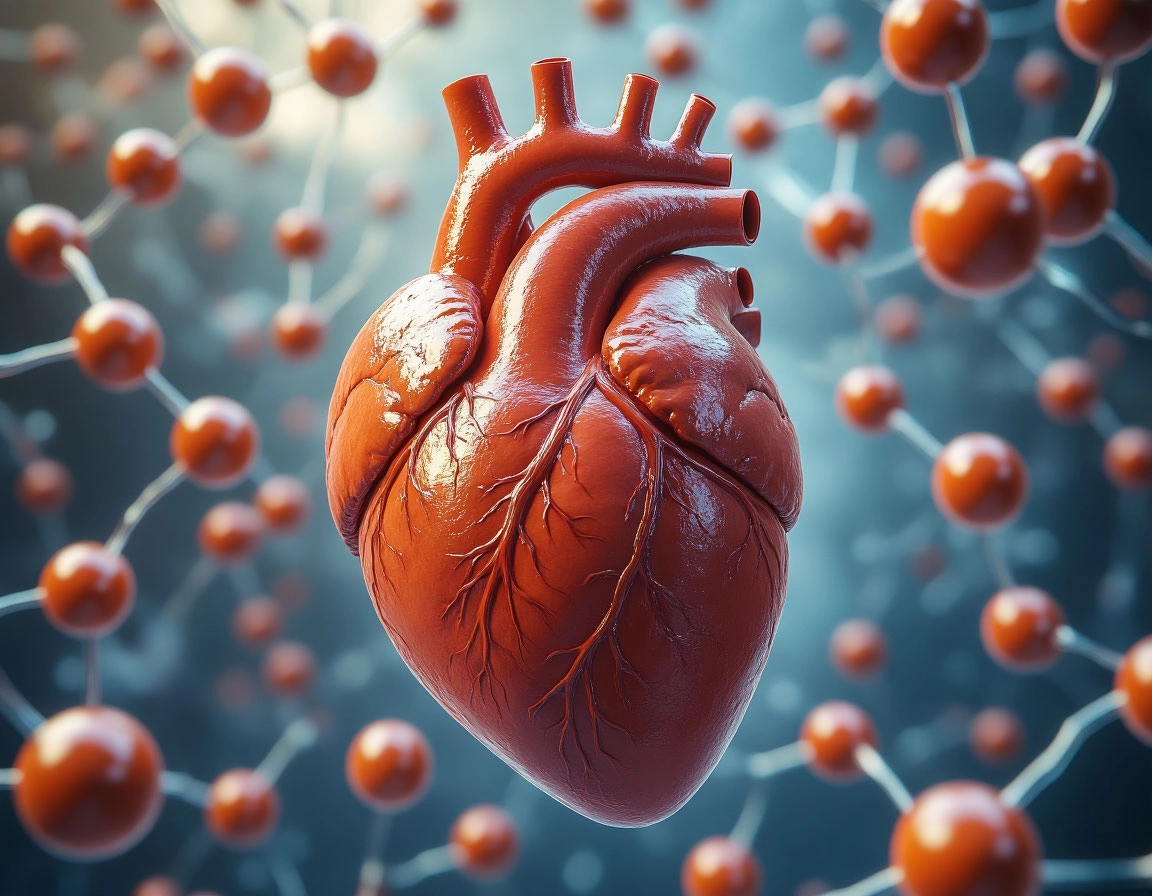
🧠 Brain, Mood & Cognitive Protection
Your brain is highly sensitive to oxidative stress, making antioxidants like vitamin E crucial for:
- Cognitive performance and memory
- Protection against age-related cognitive decline and neurodegeneration
- Regulation of mood and stress responses
Vitamin E helps stabilize neuronal membranes, supports neurotransmitter function, and assists in the repair of brain cells affected by inflammation or toxins.
⚖️ Hormonal and Reproductive Health
Vitamin E plays a key role in female and male reproductive health by:
- Supporting hormonal balance during menstrual cycles or menopause
- Improving egg quality and sperm motility
- Reducing inflammation in reproductive tissues
- Supporting skin elasticity and mucosal integrity
Because it works alongside hormones like estrogen and progesterone, vitamin E can ease symptoms like PMS, hot flashes, or low libido.
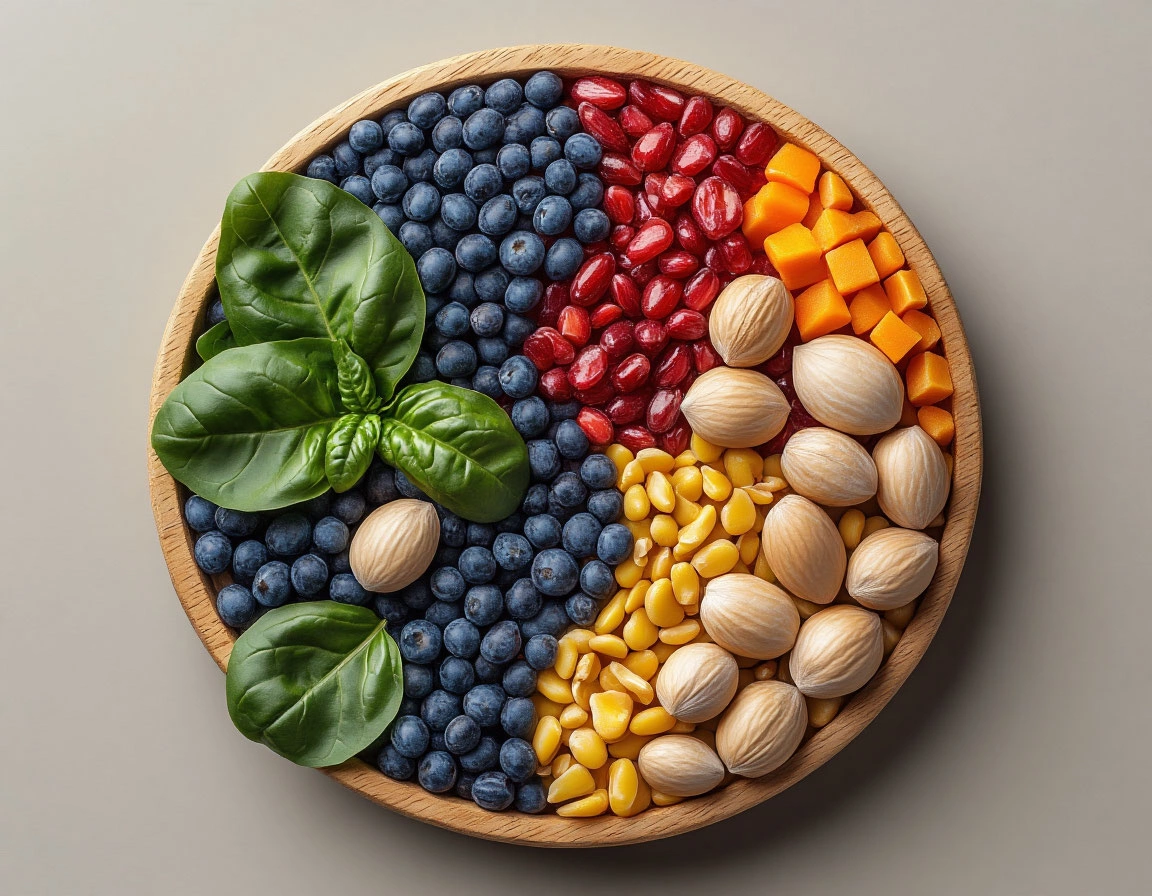
⚠️ Signs You Might Be Lacking Vitamin E
Although severe deficiency is rare, subclinical deficiency — where your levels are lower than optimal — is more common than we think, especially in:
- People on low-fat diets
- Individuals with digestive issues (e.g., celiac or IBS)
- Those exposed to high oxidative stress (pollution, smoking, chronic stress)
Common symptoms of low vitamin E include:
- Fatigue or poor recovery after physical stress
- Dry, irritated skin or hair
- Brain fog or forgetfulness
- Hormonal irregularities
- Weakened immunity
🌿 Conclusion: Vitamin E is More Than a Beauty Booster
While vitamin E continues to shine in skincare, it deserves equal recognition as a vital nutrient for total body wellness. From heart and brain protection to hormone balance and immune support, its benefits are far-reaching.
🧒 Why Kids Need Omega-3 Fatty Acids
If your child struggles to concentrate, gets tired easily, or seems to catch every cold going around — you might be missing a key nutritional piece: omega-3 fatty acids.
These essential fats are crucial during periods of rapid growth and cognitive development, especially when kids start school and face new mental challenges.
Omega-3s are responsible for the formation of brain and nerve cells, the development of vision, and the regulation of immune responses.

🌟 Science-Backed Benefits of Omega-3 for Children
Extensive research highlights the impact of omega-3s — particularly DHA and EPA — on children's health. Children who receive enough omega-3s tend to:
✅ Perform better in school — improved memory, attention, and learning capacity
✅ Get sick less often — stronger immune function
✅ Cope with stress more easily — reduced anxiety and mood swings
✅ Experience fewer skin problems like dryness or inflammation
But here’s the catch: the body can’t produce omega-3s on its own. These fats must come from food — ideally fatty fish, flaxseed, or algae-based sources. Unfortunately, modern diets often lack these components, especially in picky eaters or children who dislike fish.
🧐 How to Choose the Right Omega-3 Supplement for Your Child
With so many options on the shelf, it can be hard to know what to look for. Here’s what parents should keep in mind:
1. 🧪 Focus on EPA and DHA Content
Not all omega-3s are created equal. The two most important components for children's development are:
- DHA (Docosahexaenoic Acid) – supports brain development and visual acuity
- EPA (Eicosapentaenoic Acid) – provides anti-inflammatory support and helps regulate mood and immunity
Look for a product that clearly states the amount of DHA and EPA per serving. A higher DHA content is particularly important for supporting concentration and brain function.

2. 🌊 Source Purity and Safety
Fish oil can contain heavy metals like mercury or lead if not properly purified. Choose supplements that are:
- Molecularly distilled or filtered for toxins
- Certified by third-party labs (e.g., IFOS, NSF, or USP)
- Sourced from wild-caught small fish like anchovies or sardines — less risk of contamination
3. ☀️ Bonus: Vitamin D3 Inclusion
Many high-quality omega-3 supplements for kids now include Vitamin D3, an added benefit for immune support, bone health, and mood regulation — especially vital for children living in northern climates or spending little time outdoors. Vitamin D and omega-3s work synergistically, reinforcing each other’s effects on overall vitality.
✅ What to Choose, Based on Your Child’s Needs
- For mental focus and learning: Choose Omega-3 with higher DHA concentration
- For frequent illness or low sun exposure: Choose Omega-3 that includes Vitamin D3
- For picky eaters: Opt for chewable or flavored formats that kids are more likely to enjoy
👨👩👧 Smart Nutrition for Growing Minds
Omega-3s are more than just supplements — they are building blocks for your child’s future health, academic success, and emotional resilience. In a world of fast food and digital distractions, ensuring a steady intake of these essential fats can make a real difference. High-quality omega-3 supplements fill the gap when diet falls short, giving your child the mental clarity, immune strength, and balanced mood they need to thrive.
✈️ Don't Let Your Stomach Ruin Your Trip
Let’s be honest — nothing spoils a holiday faster than a sudden stomach issue. And it happens more often than you think.
It's not the delayed flight or the forgotten charger that derails your mood — it's your gut reacting badly to unfamiliar foods, changes in schedule, or even new microbes in local water.
Luckily, most of this can be avoided with just a little planning. Here are three expert-backed strategies to protect your digestion while you travel.

🧪 1. Start Building Your Gut Defense Before You Go
Your preparation for a smooth trip should begin at least a week before departure. Why? Because your gut needs time to build resilience.
Start taking a probiotic + prebiotic blend daily. This helps:
- Strengthen your gut microbiome
- Improve tolerance to unfamiliar foods
- Reduce the risk of bloating, gas, diarrhea, or constipation
A good supplement should contain:
- Lactobacillus and Bifidobacterium strains – beneficial bacteria that restore balance to your digestive flora
- Fructooligosaccharides (FOS) – prebiotic fibers that feed the good bacteria and promote regularity
This combo not only boosts digestive comfort but also enhances immune function, giving you double protection against travel-related stressors.

🍽️ 2. Be Mindful with Local Food & Water
Trying street food is part of the adventure, but know your limits. A few precautions can mean the difference between a culinary memory and a food-poisoning nightmare.
Smart eating tips:
- Stick to hot, freshly cooked dishes — avoid anything sitting out too long
- Say no to ice cubes in countries where water sanitation is questionable
- Wash fruits and vegetables with bottled or filtered water
- Bring your own electrolyte sachets — they’re a lifesaver if you do experience digestive distress
Bonus tip: Look up local ingredients before you go. Some common spices or herbs may be harder on your stomach than expected.

🧘 3. Support Your Digestive Rhythm During the Trip
Travel can throw off your natural body clock, and with it — your digestion. You might eat too late, move less than usual, or simply feel out of sync. That’s when digestive enzymes or fiber supplements can come in handy.
Recommended travel companions:
- Digestive enzyme tablets — help break down heavy meals and unfamiliar ingredients
- Soluble fiber powder — supports bowel regularity and keeps things moving
- Peppermint capsules or herbal teas — ease bloating and cramps naturally
Also: don’t underestimate the power of hydration and gentle movement. Walking after meals and drinking water regularly can go a long way in preventing sluggish digestion.

💡 Bonus: Create a Mini Digestive Kit for Your Bag
Pack a small pouch with:
- Probiotic + prebiotic supplement
- Digestive enzymes
- Electrolyte sachets
- Herbal tea bags (peppermint or ginger)
- Antidiarrheal or gentle laxative (just in case)
Having these on hand can save your trip from unnecessary discomfort and help you feel confident no matter what’s on the menu.